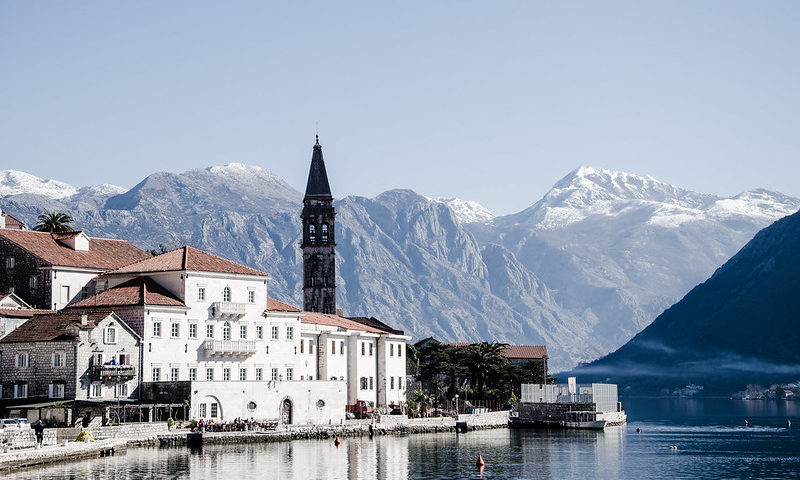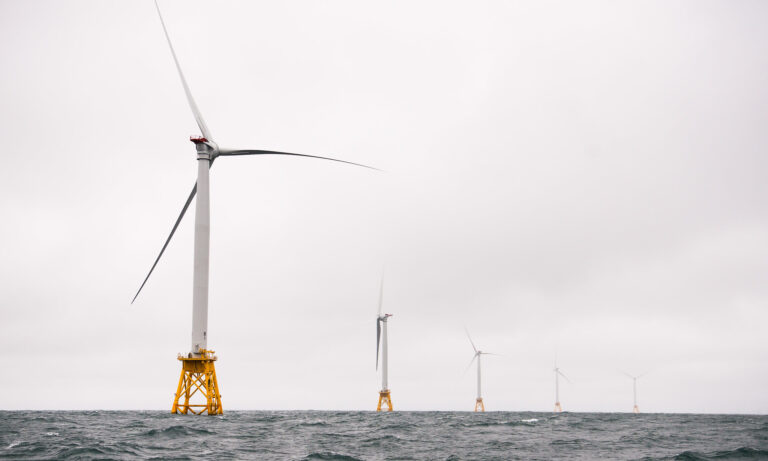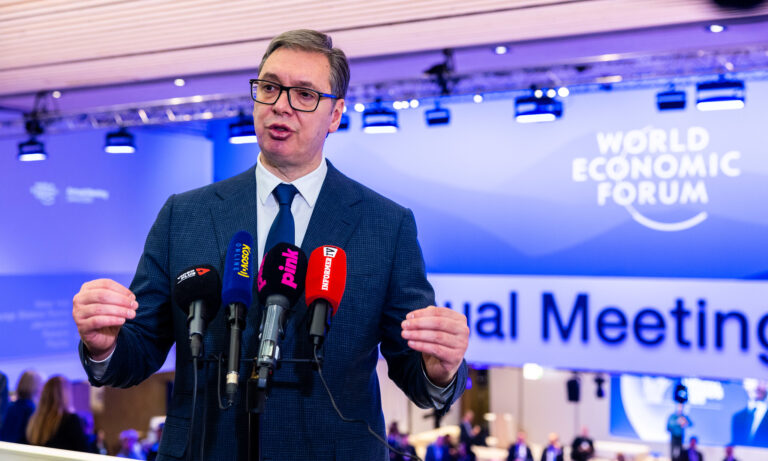Why the EU Must Deal with Montenegro’s Chinese Debt

Dritan Abazović, Montenegro’s deputy prime minister, formally requested the European Union’s help in repaying the debt to the Exim Bank of China in late March. The appeal not only renewed the EU’s focus on the current candidate, but thrust the story of the smallest Balkan nation to the forefront of the grander debate over China’s influence in Europe’s immediate neighborhood.
The Montenegrin plea to Brussels comes after the national public debt shot up to devastating 103.28% of GDP in December 2020. The majority of the debt is to foreign lenders, representing 91.46% of the country’s GDP. Chinese Exim Bank is Montenegro’s largest bilateral lender, accounting for a whopping 17% of total foreign debt.
The reason for such a high level of debt to Chinese banks is a preferential loan agreement signed by the Montenegrin government with Exim Bank and China Road and Bridge Corporation (CRBC) for the construction of a section of the Bar-Boljare highway in 2014. The previous government, led by the Milo Đukanović’s Democratic Party of Socialists of Montenegro (DPS) signed a contract worth more than $943 million for the construction of a 41km long section of highway from Smokovac to Mateševo, with a 2% annual interest rate following a six-year grace period.
Montenegro’s White Elephant
From the start, the contract was seen as lacking economic rationale. Two independent studies conducted in 2009 by the French company Louis Berger and US company URS in 2012 concluded that the highway will not carry enough traffic to justify the project. Even the feasibility study conducted by the Montenegrin domestic experts questioned the project but nonetheless described it as “economically justified”.
Despite the unfavorable conditions and questionable feasibility study, the Montenegrin government went forward with the signing of the contract and began construction in 2015. From the start, the project was seen as a potential ‘debt trap’ as public finances became even further stretched due to ancillary factors after the loan’s approval.
Namely, in 2019 Montenegrin government under DPS adopted the annex to the original contract for an additional €30 million for the added construction on the section of the highway. Moreover, Montenegro was hit by decreasing Russian investments after it introduced sanctions on Russia in 2014 in line with the EU. In 2014, Russia invested more than €123 million, but sanctions prompted a cut back to just €53 million by 2016. While Russian investment returned, reaching €99 million in 2020, the gap influenced the rise of the public debt significantly.
With the first payment of the loan for the Bar-Boljare highway scheduled for July 2021, Dritan Abazović turned to the EU for help in the repayment of the loan. The EU previously raised concerns over the country’s debt to China, warning that it may impact the overall macroeconomic balance of the Western Balkan country. However, the previous government went through with the project, despite all concerns and warnings.
Abazović’s plea was reiterated in the statement made by the Montenegrin minister of finance, Milojko Spajić. In an interview for Financial Times, Spajić said that the government would seek financial help from a range of Western organizations, including the European Commission, the European Investment Bank, and the European Bank for Reconstruction and Development. But it looks like the plea will not be granted.
The EU sent a message to Montenegro that while it is committed to help Montenegro to align with EU standards and contribute to the sustainability of public debt by sustainable investment, repaying the loans taken from third countries is out of question.
Moreover, Brussels says it is dedicated to the long-term structural reforms in Montenegro and that it will help Montenegro to develop its infrastructure through the EU’s economic and investment plan for the Western Balkans. But that long-term plan might not be enough to prevent Montenegro from becoming dependent on China, as Abazović warned.
The EU Must Step in
While leaving Montenegro to deal with its self-inflicted debt might be a cautionary story for other countries pursuing questionable financial arrangements, the EU could score an easy win through providing short-term assistance to Montenegro.
First, it could help the image of the EU in the Western Balkans. The uncertain future of the European integration of the whole region, the activities of actors like China and Russia, and the rising anti-EU narratives among leading politicians from the region have significantly impacted the image of the EU among citizens of the Western Balkans. If Brussels decides to jump in and assist Montenegro in resolving this most pressing issue, it will gain points and present itself as a savior, demonstrating a commitment to the region that is now questioned more than ever before.
Second, the EU will have the opportunity to match its words to actions. Since 2018, the idea that the Western Balkans are “Trojan horse” of the Chinese influence has persisted, causing the EU to consistently criticize the readiness and eagerness of Western Balkans countries to engage with China and Chinese-backed projects. In January of 2020, members of the European Parliament expressed concerns over increasing Chinese presence in Serbia and its impact on the environment. Criticism and expressed concerns are rarely followed by concrete measures, however, countries like Serbia continue courting China. This would show that the EU is ready to act, and gain leverage by helping out Montenegro by directly stepping in.
Third, the EU would win a “geopolitical battle”. The old saying that “EU is an economic giant, a political dwarf, and a military worm” will be contested if the EU challenges the Chinese inflience in the region. Through a mixture of political and economic instruments in helping out Montenegro, the EU would easily reaffirm its position in Montenegro and Western Balkans as a whole, showing that it is committed to playing a geopolitical role in its immediate neighborhood.
Fourth, the current Montenegrin government has nothing to do with the original contract and inherited debt. The current ruling coalition in Montenegro came to power after a tight victory over Đukanović’s DPS in parliamentary elections in 2020. Since the beginning, it has expressed a will to combat systemic corruption and has reiterated its pro-European and pro-Atlantic stance. Leaving the new government in the cold could endanger the prospects for success of reforms in the country and its long-term European path.
Finally, the Montenegrin government doesn’t have the tools to combat the issue itself. Without the help of Western actors, there is a lack of options on the table. Representatives of the government have not publicly stated if they have approached China to delay the repayment or restructure of the debt. A real possibility of a collateral in favor of China (land and natural resources) is in play. There is no possibility to ask for arbitration or to take the case to court because the agreement signed by the previous government includes the clause that gives the jurisdiction over any possible disputes to Chinese courts.
The EU should provide help to Montenegro in repayment of the debt to China. It will strengthen the EU’s legitimacy in the Western Balkans, and improve its geopolitical position. The provided help would enable the current government to focus on the internal reforms and continuation of the process of European integration. The assistance will confirm the EU’s dedication to the Western Balkans and the EU future for the region.
One of the possible solutions could be a redirection of €113 million envisioned for Montenegro through the EU-WB COVID-19 package for the socioeconomic recovery and macro-financial assistance, which could provide breathing room for Montenegro. Afterward, Brussels should closely work with the new government in Podgorica to create a long term and more sustainable plan for the repayment of the Chinese debt.
Offering a helping hand is a low hanging fruit for the European Union, and while it should be careful not to set a precedent and create a perception that it will jump in whenever a neighboring country falls into an unfavorable position, it should find a way and mechanism to put out the largest fire in its immediate neighborhood.
Written by
Stefan Vladisavljev
vladisavljev_sStefan Vladisavljev is CHOICE Visiting Fellow. He is also the Program Coordinator of the Serbia-based non-governmental organization Foundation BFPE for a Responsible Society. He analyzes Chinese presence in Central and Eastern Europe with a special focus on Serbia and the Western Balkans.


